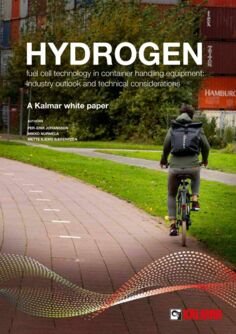AMERIKA
ASIEN & OZEANIEN



Webinars
Hydrogen fuel cell technology in container handling equipment: Industry outlook and technical considerations.
Hydrogen-based fuel cell technology is currently generating significant interest across multiple industries as companies worldwide seek to lower the carbon footprint of their operations in line with internal goals, stakeholder demands and regulatory pressures. So-called green hydrogen is an energy storage that theoretically provides 100% carbon-neutral energy if the hydrogen (H2) is produced by electrolysis using renewable power sources.
The global hydrogen economy is expected to grow massively over the next decades, but this is contingent on green hydrogen achieving cost-competitiveness with fossil-based alternatives before 2030. Hydrogen-based fuel cells have been used for many years in applications such as light forklift trucks, enabling quick refueling, local zero emissions indoors, and simplified maintenance compared to traditional solutions. For the container handling industry, the key question is whether H2 fuel cells can scale economically to heavy equipment and whether H2-based solutions will offer significant benefits over grid-powered battery electric vehicles (BEVs).
In this white paper, we explore
- The current state and future outlook of the global hydrogen industry
- Attraction and deployment barriers for fuel-cell based solutions
- The cost and energy efficiency competitiveness of H2 fuel cell based container handling equipment compared to battery electric vehicles



Per-Erik Johansson, Technology Manager Electrification at Kalmar
Mikko Nurmela, Senior Product Manager, Horizontal Transportation, Kalmar
Mette Kjems Bærentzen, Head of Sustainability at Kalmar
